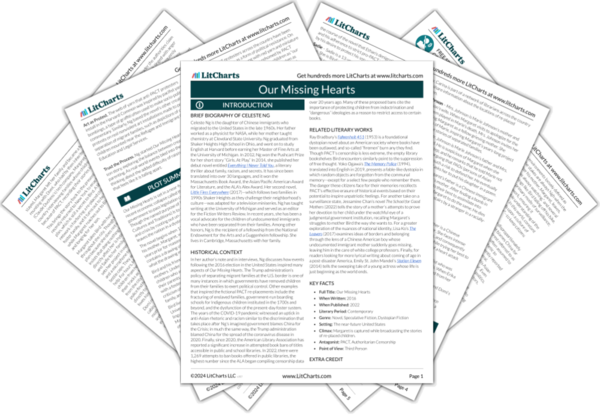Bird realizes that Ethan is lying to protect him, highlighting his father’s deep fear of the authorities. Despite the fact that Bird did not deface the posters himself, he still gets into trouble for Sadie’s actions, showing how the government views anyone in proximity to “dangerous” activities as complicit and deserving of scrutiny. In this context, Ethan’s paranoia and caution make sense, as the tiniest infraction can result in severe consequences.
